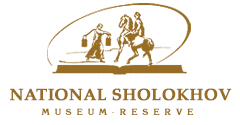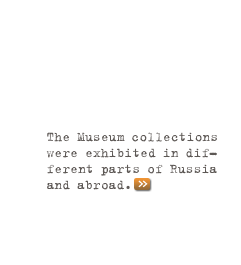Museum Collection
Letters from the Archives of B.S.Lashchilin
50 letters of the late XIX – early XX centuries from the archives of Boris Lashchilin were transferred to the Sholokhov Museum by A.V. Tikhomirov (Voronezh) late in the May of 2012.
Boris Stepanovich Lashchilin (1906–1987) was a writer and historian, member of the USSR Union of Writers, a folklorist, collector, keeper and expert in Cossack tales, legends and true stories. After the death of Lashchilin his working archives were transferred to Voronezh and in the April of 1991, a part of the materials on the Don and Khopyor folklore were transferred by Lashchilin’s adopted daughter, Olga Alexandrovna Tikhomirova, as a gift to the Museum-Reserve of M.A.Sholokhov.
Now the originals of the personal letters of 1883–1916, a correspondence of the relatives and friends of B.S.Lashchilin are kept in the Museum collection stores.
Among them there are letters of Olga Alexeyevna Chulkova (B.S.Lashchilin’s grandmother) addressed to her parents, Alexey Vasilyevich Stepanov and Yevdokiya Ivanovna Stepanova (1883, 1884) to her husband, Nikolay Yakovlevich Chulkov (1883,1884); a letter of Nikolay Yakovlevich Chulkov (B.S.Lashchilin’s grandfather, a poet, a son of the priest of the Voronezh Guberniya, to his wife, Olga Alexeyevna (1884), his correspondence with Alexey Vasilyevich Stepanov (1884,1885); 20 letters addressed to Lidiya Nikolayevna Chulkova (the mother of B.S. Lashchilin) from Alexey Vasilyevich Stepanov (great-grandfather of B.S.Lashchilin, the archpriest of Stanitsa Uryupinskaya), his wife, Yevdokiya Ivanovna, and his son, Alexander Alexeyevich (1896, 1898,1902, 1909–1912, 1914, 1916).
These are the past century documents, which are of historical interest. In the letters we feel the warmth of family relationships, attention and interest for the interlocutor; they widen our idea of interests and hobbies of the people of the past era, about the style of a written communication of that time.
Lyudmila Afanasiyeva























